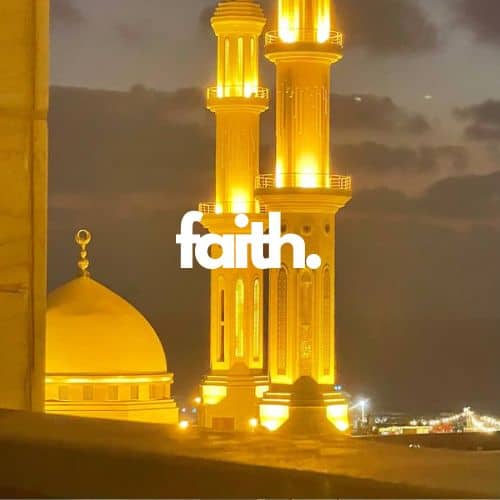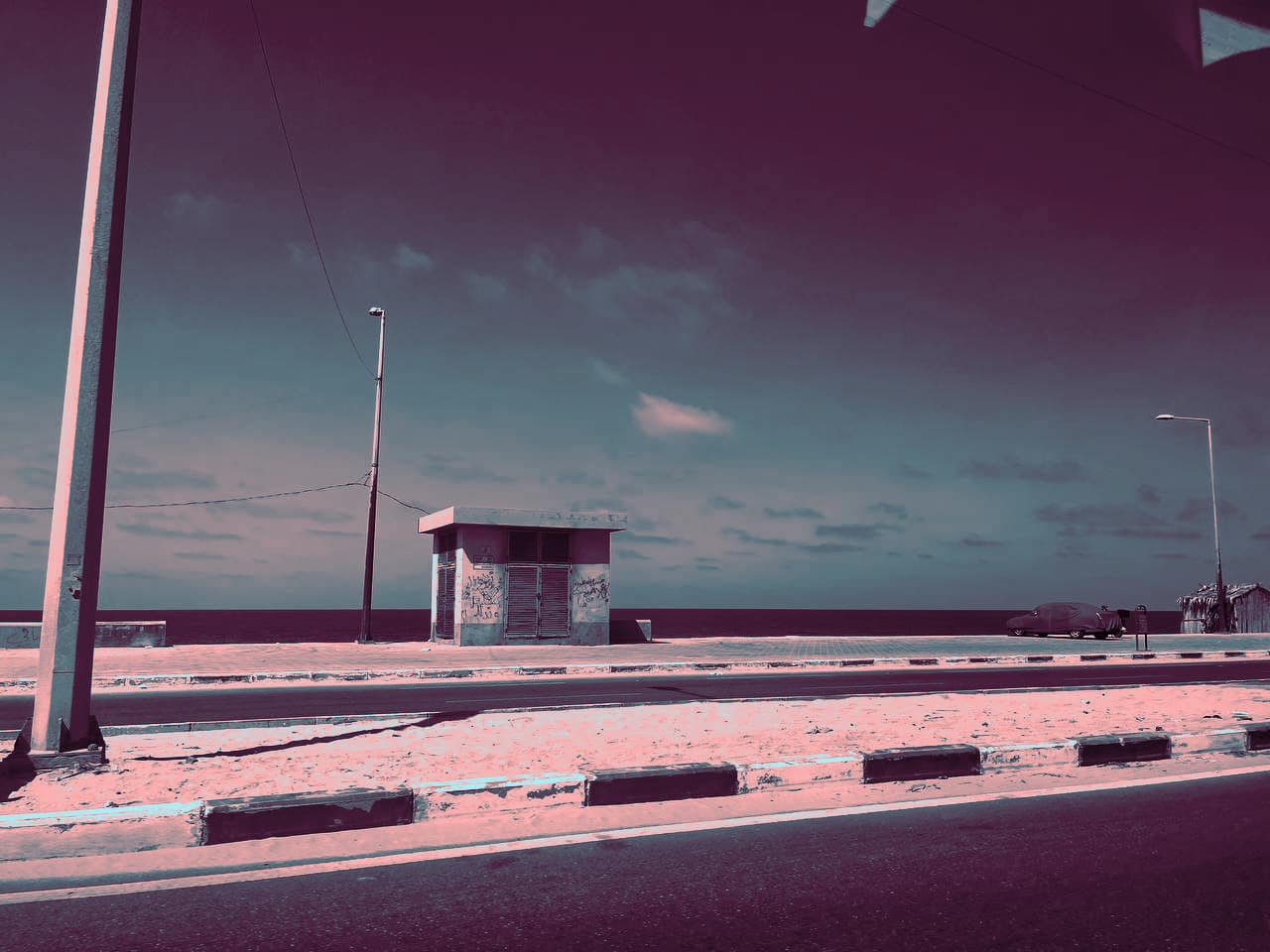Also: strength, religion, resilience.

Faith is the beating heart of Gazan society, infusing every aspect of life with a profound sense of purpose and direction.
From the melodious call to prayer echoing five times a day, resonating in harmony from every masjid across the Gaza Strip, to the unwavering resilience of its people, faith is not just a belief but a way of life—a guiding force that shapes Gazans’ thoughts, actions, and interactions. In Gaza, faith is the thread that weaves together the fabric of Gazan society and culture, instilling hope, perseverance, and unity in the face of adversity. People oftentimes note Gazans’ seemingly inhuman strength and their astonishing ability to persevere no matter what; what they fail to note, however, is the source and that is FAITH.
When searching for information about Islam and Gaza online, the results often focus on militant groups and Western narratives that perpetuate stereotypes and misinformation, fueling Islamophobia. However, in Gaza, where 99% of the population practices Sunni Islam, religion is more than just a belief system—it is a way of life which infuses the local society with strong moral values like resilience, generosity, selflessness, camaraderie, and seeking knowledge. Despite facing adversity, Gazans draw strength from their faith, striving to embody the best of themselves even in the toughest times. It is crucial to understand the multifaceted nature of Islam in Gaza and move beyond simplistic portrayals to foster understanding and respect.
While a small Christian minority is present, the overwhelming majority of Gazans adhere to Sunni Islam. This religious homogeneity contributes to a seamless coexistence, with shared beliefs shaping daily life. In Islam, the Quran and Ahadeeth provide comprehensive guidance for every aspect of human existence. For Muslims, they serve as more than just religious scriptures as they are also used as sources of legal, social, educational, and humanitarian principles.
Islamic teachings emphasize resilience and steadfastness, qualities evident among Gazans as they respond to their lives’ myriad challenges, whether daily struggles with water and electricity shortages or enduring the hardships of wartime bombardments. Faith in Allah (God) serves as a vital source of strength, reflected in the pervasive presence of Islamic teachings in Gazan life, from murals adorned with Quranic verses to the call to prayer resounding from every masjid (mosque) five times daily.
In Gaza, a vibrant culture centered around Islam permeates daily life, with a plethora of Islamic and Quranic classes, clubs, and camps catering to students and the community. It is a commonplace to hear children reciting the Quran while walking down the street and of their excitement to spend their time at local masjids, which serve not only as places of worship but also as hubs of community and faith.
During the holy month of Ramadan, the entire Strip becomes a beacon of spirituality, strength, and togetherness. Shops and food vendors close during the day and, during the daylight hours, one would only see young children eating in the streets. During Ramadan, Gaza’s streets are populated with people discussing fasting and religious practices. Nights being about a bustling atmosphere with people attending taraweeh (Ramadan-specific nighttime prayers) or giving alms to the poor. The last ten days of Ramadan bring with them lively markets as people prepare for the upcoming and joyous celebration of Eid Al-Fitr.
In Ramadan, Muslims fast daily from dawn to sundown with the 2.3 million people in Gaza breaking their fast simultaneously as the call for prayer echoes from every mosque. While children do not fast, there is a distinct atmosphere around the iftar (fast-breaking meal) table which invites everyone to “break their fast,” even if they have been eating all day.
The 3-day Eid al-Fitr celebrations that follow the holy month of Ramadan are marked by rich traditions and cultural festivities observed by the mass majority of Gazans. Other religious days and celebrations are also revered and celebrated by all Gazans, reflecting the deep-rooted religious identity and cultural cohesion that defines life in Gaza.
Despite their minority status, Gaza’s Christians are deeply integrated into society. Whether a result of their shared experiences under occupation, the long history of religious diversity in Palestine, or simply mutual respect, we cannot say but the fact that Muslims and Christians exist in Gaza in peace is true. While Christians are not bound by Islamic law in personal matters, they coexist harmoniously with their Muslim counterparts, reflecting Gaza’s rich history of religious diversity dating back centuries.
Gaza’s Christian community, although minuscule, boasts enduring symbols of heritage, such as the Orthodox Church of St. Porphyrius, dating back to 452 CE. The Al-Ahli Arab Hospital and Christian schools contribute to the Strip’s cultural fabric, providing vital healthcare and educational services to Gazans of all backgrounds. Additionally, Gaza’s YMCA has been a center of community engagement and cultural enrichment for decades.
